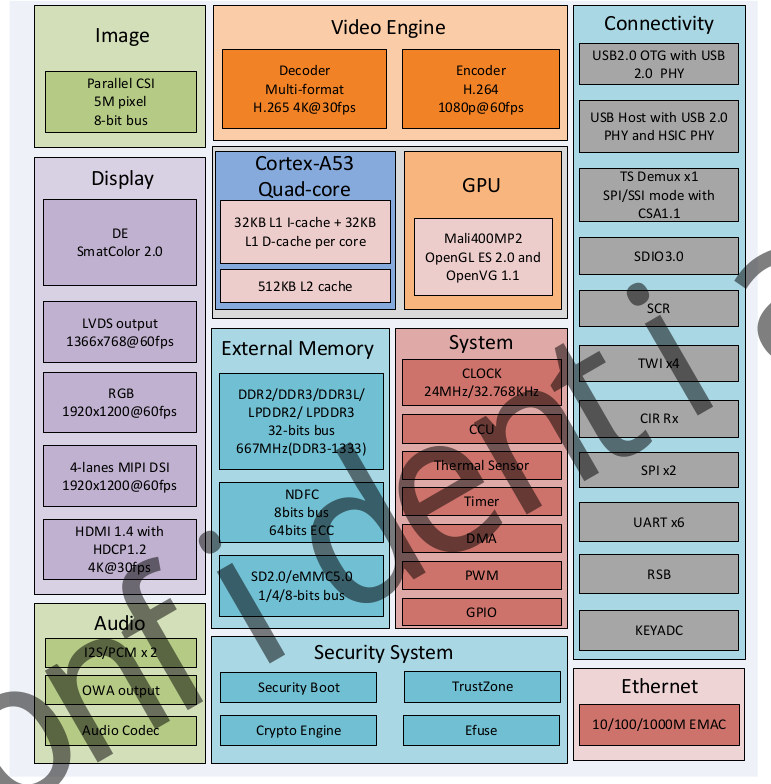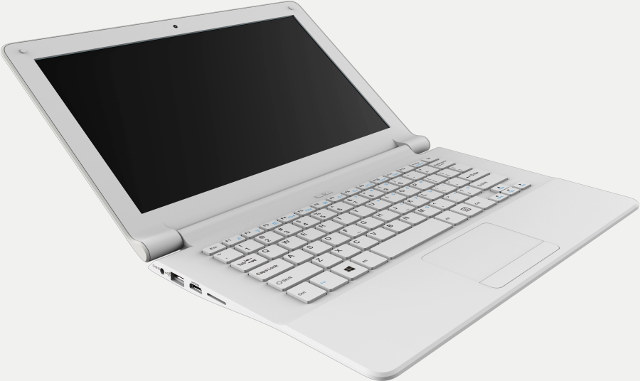Allwinner has two 64-bit ARM processors in the works: Allwinner H64 and Allwinner A64. Both are quad core Cortex A53 processors with a Mali-400MP2 GPU, H.265 4K video playback with basically the same interfaces and peripherals, but H64 also supports H.264 at 4K resolutions, while A64 is limited to H.264 @ 1080p, and H64 adds a TS interface.

The first good news is that two boards are in development:
- Orange Pi Plus 3 with Allwinner H64
- Olimex A64-OLinuXino update with Allwinner A64
Engineering samples have already been produced for the first board, but that’s about all the information we have now, as Shenzhen Xunlong has not built its reputation by releasing documentation early. One the other hand, A64-OLinuXino schematics have nearly been completed, but we already know more details, as not only Olimex boards are open source hardware, but the company defies conventional wisdom by involving the community in the development process early. So they published the first revision of the Kicad schematics on Github to get feedback.
And together with their own work, they’ve also released the datasheets of the main components including A64 datasheet and TRM:
- Allwinner A64 datasheet (63 pages)
- Allwinner A64 user’s manual (720 pages)
The third good news is that A64-OlinuXino Allwinner A64 board should eventually be used in a 64-bit ARM DIY laptop made by Olimex themselves.

At some points, we’ll also need some bootloader and Linux source code for Allwinner A64, but that’s the next step.

Jean-Luc started CNX Software in 2010 as a part-time endeavor, before quitting his job as a software engineering manager, and starting to write daily news, and reviews full time later in 2011.
Support CNX Software! Donate via cryptocurrencies, become a Patron on Patreon, or purchase goods on Amazon or Aliexpress




